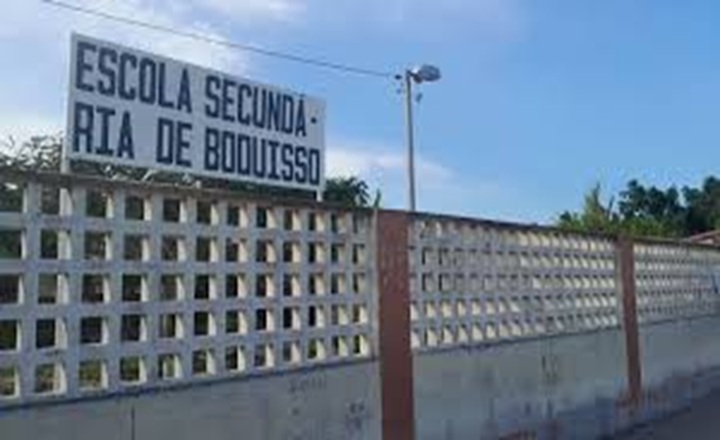
Justice Minister Mateus Saize: The CC awardee who wants a million-dollar house when the quiet employee is faced with salary uncertainty. A reddish yellow for the minister

Mozambique's Minister of Justice, Mateus Saize, is embroiled in two episodes that not only raise serious questions about the integrity of public management, but also threaten the foundations of the rule of law and government morality. Austerity continues to be perceived as the opposite by those who should encourage it, and Saize emerges as yet another adventurous leader who only has eyes for money.
The first yellow card was given to Mate’s refusal to accept the demand for a new residence, estimated at over 20 million meticais. This behaviour, in addition to being unreasonable, is deeply offensive in a country where large sectors of the population face extreme precariousness and where the justice sector itself continues to be weakened by a lack of resources, slow legal procedures and a lack of public trust. The demand for a luxurious residence reveals not only a distance from the realities of the Mozambican people, but also an blatant use of state privileges that is beyond reasonable limits. What message does a Minister of Justice send who puts his personal whims above budgetary restraint and commitment to public service?
The second, more structural, card concerns his political appointment. Until recently, Mateus Saize served as the presiding judge of the Constitutional Council, one of the most sensitive institutions in the Mozambican democratic architecture. His direct transition to the Executive seriously undermines the perception of independence between the powers of the State and raises legitimate doubts about the neutrality of the decisions that helped to sustain the current configuration of political power. This appointment, made by the President of the Republic, cannot be dissociated from the political context that preceded it, and sounds like a gesture of political recognition for services rendered, a practice that undermines the ethical foundations of democratic governance.
But there is an even more worrying aspect: Mateus Saize is also a law professor. The question that arises is: what kind of law is taught by someone in a position of authority who acts in disregard of the most basic principles of legality, public ethics and common sense? How can students believe in the power of justice when their mentors, who hold public office, are the protagonists of acts that discredit the system itself?
The discourse of an “inclusive government”, repeatedly invoked by the President of the Republic, falls flat in the face of a reality in which the highest positions continue to be reserved for figures with strong party affiliations, with no real space for the opposition or representatives of civil society. This is a political exclusion disguised as governmental stability, which perpetuates a culture of concentration of power and institutional weakening.
Practices such as these deepen the gap between the State and its citizens, erode the moral authority of institutions and seriously compromise the future of Mozambican democracy. These are not just one-off decisions, but clear signs of a governance model that prioritizes political loyalty over competence and integrity.
The double yellow card given to Mateus Saize is more than a warning; it is a pertinent diagnosis in light of the actions of this government, which has the difficult mission of restoring the socio-political order of the country, which is immersed in several silent battles. Democracy is not strengthened by rhetoric or symbols, but by coherent actions and scrupulous respect for republican principles. The country cannot continue to normalize the opportunistic use of public power as a means of reward or self-enrichment. It is urgent, with urgency and courage, to re-establish a culture of responsibility, where serving the State means, in fact, serving the people.
Analysis points for VAR?
- Validation of Controversial Election Results:Before taking up his ministerial post, as a Judge Advisor to the Constitutional Council, Saize participated in the validation of the results of the October 9, 2024 elections, which were widely contested due to allegations of fraud. This action raised questions about the impartiality and independence of the judicial body.
- Appointment to the Ministry of Justice:Saize's direct transition from the Constitutional Council to the position of Minister of Justice was seen by many as a political coup, especially considering his role in validating the election results favourable to the ruling party. The appointment sparked debates about ethics and the separation of powers in the country.
- Refusal of Protocol Residence:After his appointment, Saize refused the formal residence assigned to the position, requesting another one of significantly higher value, estimated at more than 20 million meticais. This attitude led to criticism regarding the responsible management of public resources and the minister's sensitivity to the economic difficulties faced by the country.
These three situations, which occurred in a short space of time, raise serious concerns about the image of state agents in their close relationship with the party organization that runs the country, as well as about the government's commitment to democratic principles and human rights.
Outras noticias

Society
19-year-old woman arrested for kidnapping newborns at Chókwe Rural Hospital
2026-01-08

Society
Tension in Salamanga: Conflict between the Community and Rangers of the Maputo Reserve
2026-01-08

policy
YELLOW CARD NO. 1 OF THE YEAR: BETWEEN PROMISES, POPULISM AND THE URGENCY OF NATIONAL PRIORITIES
2026-01-08

policy
YELLOW CARD FOR THE FIRST PRESIDENTIAL REPORT: NARRATIVE ARROGANCE, SYSTEMIC CONTINUITY, AND THE WASTE OF A FIRST YEAR OF HOPE
2025-12-25

Society
Intaka-Boquisso road floods after inauguration, leaving residents outraged
2025-12-25
Copyright Jornal Preto e Branco All rights reserved . 2025